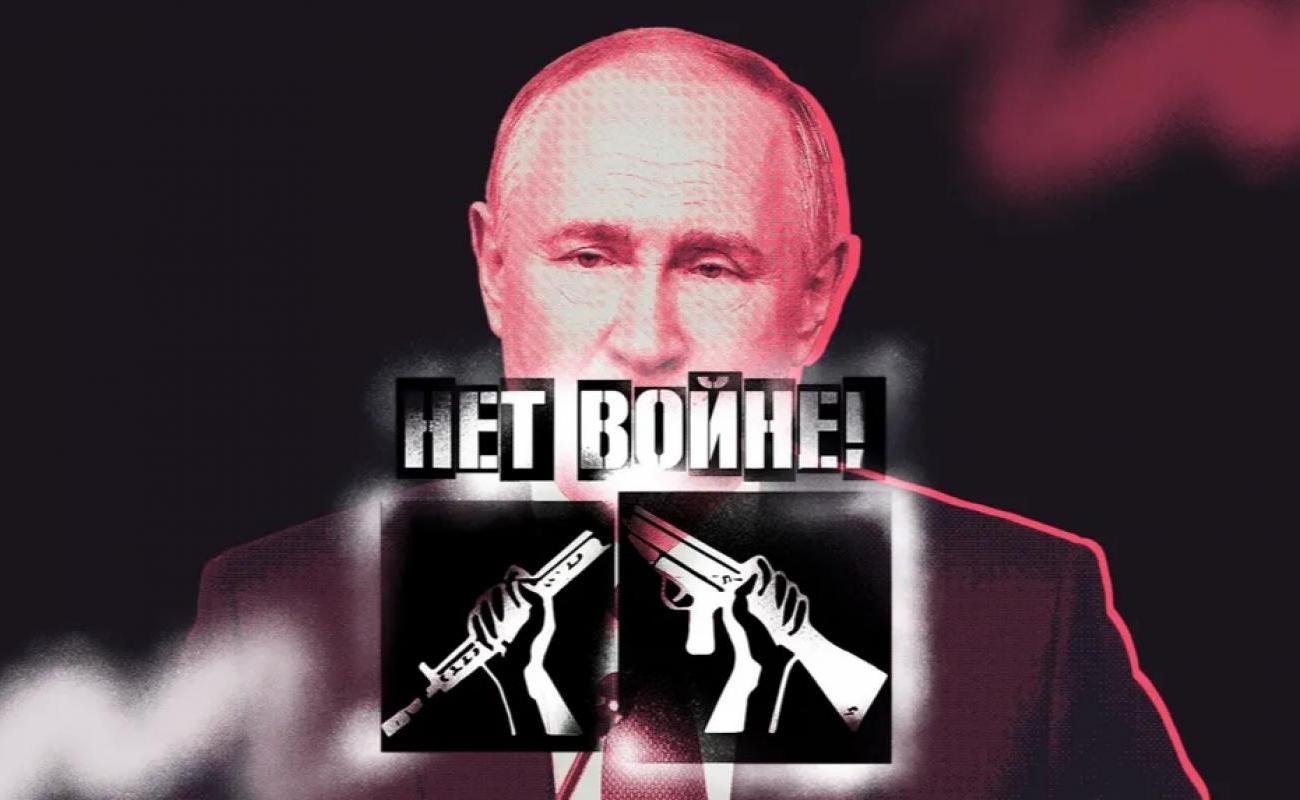The Difficulties of Protesting the War in Russia

Who still dares to protest the war in Russia? Women. They hold up signs, lay flowers, hide messages in books and write to political prisoners. DER SPIEGEL spent months following three of them.
Just a few more minutes, says Katya. She is standing in front of a monument to the victims of Stalin in northern Moscow and holding up a sign: "Freedom for the political prisoners.” In her other hand are two red roses. Those who still do such a thing in today’s Russia know full well that they are risking arrest.
Two passersby glance over at the dainty woman. A prisoner transport van, siren blaring, speeds past in the evening rush-hour traffic on the multi-lane ring road. A companion takes photos of Katya, which she will later post on Facebook. The police could show up at any moment and take her away. Her lawyer has warned her that if she gets caught one more time, she will likely be thrown in prison. A woman in her late 40s, Katya has been levied fines on seven occasions for protesting against the war in Ukraine – or for "discrediting” the army, as it is officially called.
After 10 minutes, she puts down her sign, grabs her backpack and walks to the subway. A butterfly in the Ukrainian national colors of blue and yellow dangles from her bag next to a colorful peace symbol and the crossed-out English word "War.” Katya could get in trouble for this bag alone: Three additional "discreditations.”
Vladimir Putin’s war against his neighboring country has now been underway for almost three years, bombing cities and killing civilians. During this time, Russian security agencies have almost completely cleared the country’s streets of those who actively oppose the war. Public space is reserved exclusively for tales of battlefield heroes and their triumphs.
Shortly after ordering the invasion of Ukraine, Putin issued two harsh censorship laws. One of them targeted alleged acts of "discrediting the Russian armed forces,” and the other aimed at the "public dissemination of knowingly false information” about the military’s deployment. Those who call the war what it is, or who openly criticize the invasion face severe penalties of up to 15 years in prison.
In May of last year, when Putin had himself installed in office for a fifth term, he said: "We are a unified and great nation. Together, we will be victorious.” It was a message to the entire state apparatus, from the office of the presidency, the security agencies and the ministries, on down to the media and state-run companies, and even to regional administrations, universities, schools and kindergartens: The president demands unconditional loyalty. Those who publicly question the war and Putin’s course are criminalized.
The Russian human rights organization OVD-Info lists over 20,000 arrests made due to anti-war protests, including a striking number of women. It used to be the case that large demonstrations primarily attracted young men. But the activists from OVD-Info have determined that women have made up almost half of those arrested at such protests since the beginning of the year. Their share was even 70 percent during demonstrations against Putin’s mobilization in September 2022. Men who were arrested risked being conscripted into the army and sent to the front. OVD-Info has documented several such cases.
As such, Katya believes, it is less dangerous for women to demonstrate. "But they also realized more quickly what this war means: all of the deaths, the human suffering, the millions of refugees.” To protect her safety, she has requested that her full name not be used in this article. She is one of three women protesters who DER SPIEGEL has followed over the course of several months – women who continue to engage in acts of defiance despite the dangers.
Katya says she is afraid. "But I can’t sit at home and remain silent. That would drive me crazy.”
So she heads out onto the street, driven to desperation by the indifference shown by so many others. Every day, Russian rockets and drones are killing Ukrainians, she says. Every day, the Russian regime is locking away more political prisoners. Some of them have starved themselves to death in prison, like the anti-war activist Pavel Kushnir in late July last year. And most Russians, she says, simply don’t care.
